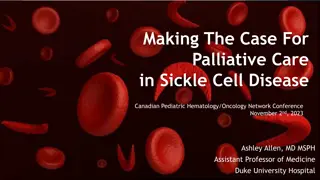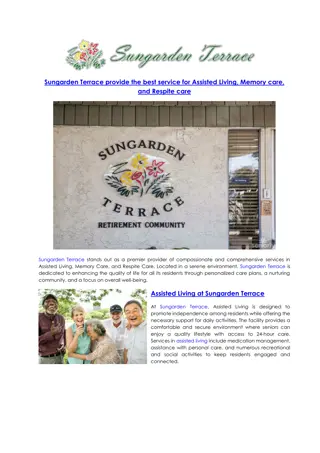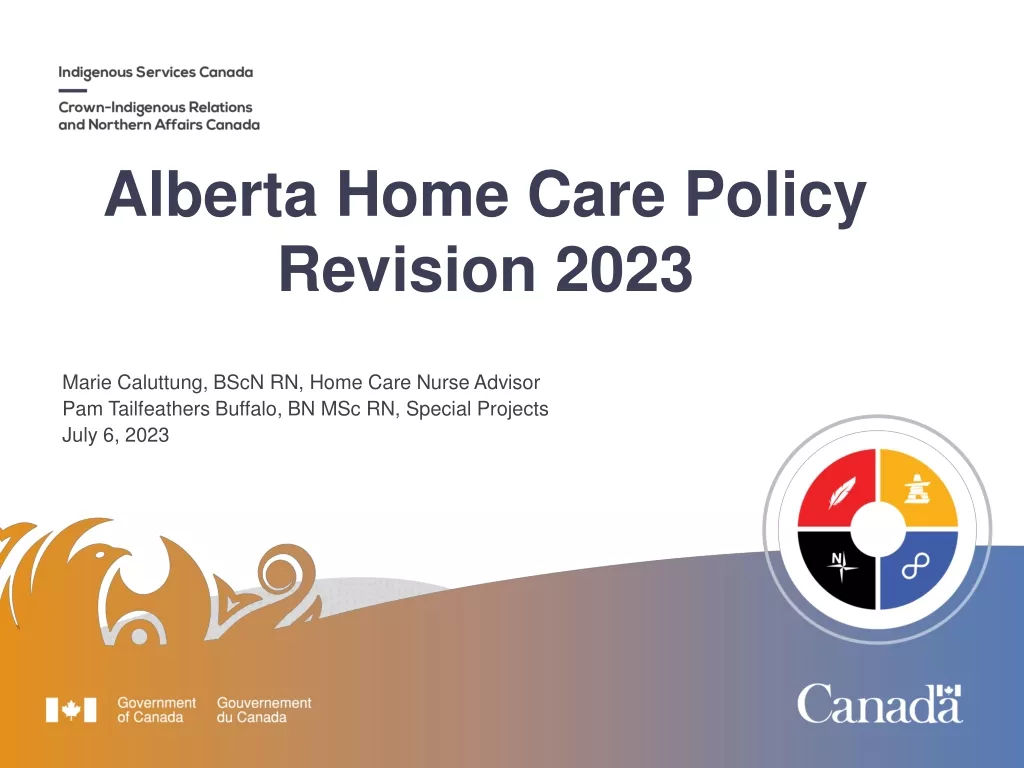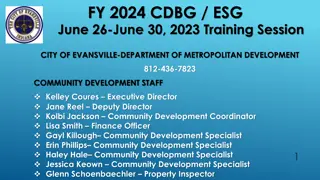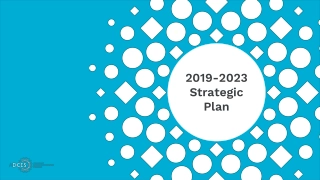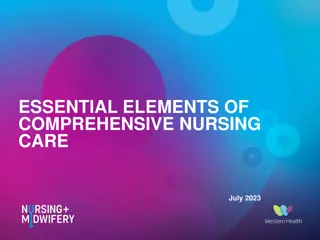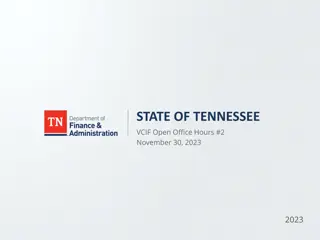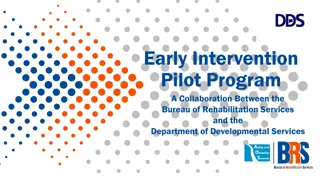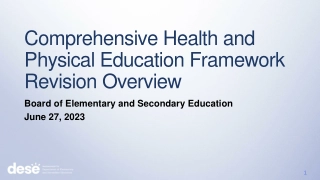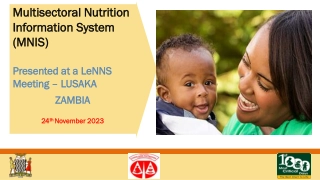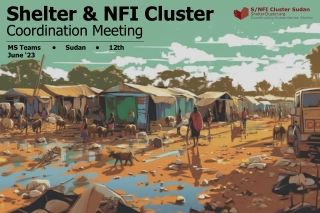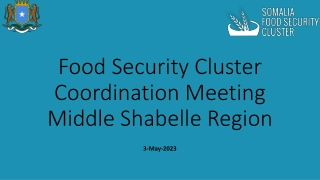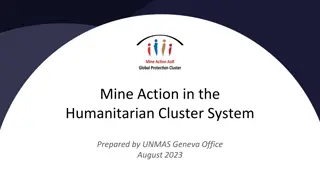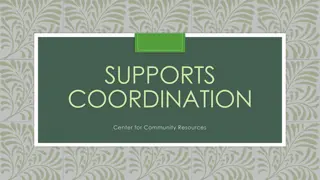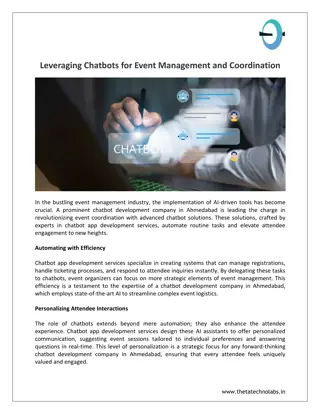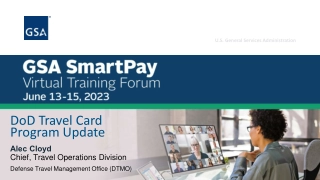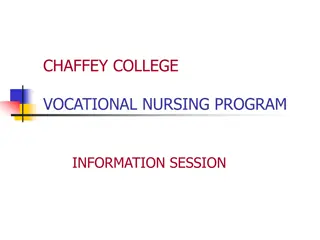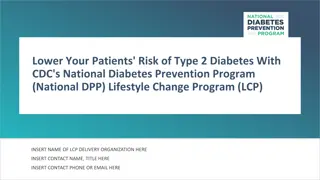Comprehensive Care Coordination Program Overview
This comprehensive care coordination program, led by Mia Taylor, MSN, FNP-BC, APRN-Rx, focuses on a team-based model of care involving extended care team members such as social workers, RNs, case managers, and health coaches. The program includes health coach responsibilities, transitional case management for high-risk patients, and support for patients in the post-acute care setting. Community resources and patient engagement through various modalities are key components of this proactive healthcare approach.
Comprehensive Care Coordination Program Overview
PowerPoint presentation about 'Comprehensive Care Coordination Program Overview'. This presentation describes the topic on This comprehensive care coordination program, led by Mia Taylor, MSN, FNP-BC, APRN-Rx, focuses on a team-based model of care involving extended care team members such as social workers, RNs, case managers, and health coaches. The program includes health coach responsibilities, transitional case management for high-risk patients, and support for patients in the post-acute care setting. Community resources and patient engagement through various modalities are key components of this proactive healthcare approach.. Download this presentation absolutely free.
Presentation Transcript
QCIPN CLINICAL CARE COORDINATION PROGRAM A Team-Based Model of Care Mia Taylor MSN, FNP-BC, APRN-Rx Director, Community & Post-Acute Care Services Clinical Care Coordination & Transitional Case Management 1
EXTENDED CARE TEAM Social Worker RN Case Manager-complex CHW/Navigator Health Coach Dietician Pharmacist Psychiatrist TEAM-BASED MODEL OF CARE PRIMARY CARE TEAM Physician (MD) Nurse Practitioner (NP) Provider Practice Assistant (PPA/MA) Registered Nurse (RN) COMMUNITY RESOURCES Skilled Nursing Facilities/ LTC Facilities Home Care /Home Infusion Agencies Hospice/Palliative Care Agencies Behavioral Health/Substance Use Support Community Pharmacists Physical Therapy Urgent Care Payers 2
QCIPN CCC Health Coach Responsibilities Guide patients through the stages of change. Engage in change talk, individualized approach to supporting the patient s goals Regular patient check-ins (asynchronous & synchronous) via different modalities based on patient preference As needed, support patients in learning to use monitoring devices such as for blood pressure, blood glucose and weight As needed and established by protocol coordinate patient visits with pharmacist, physician, and/or additional health system resources 3
TRANSITIONAL CASE MANAGEMENT PROGRAM Provides telephonic support for 30 days for patients discharging from Punchbowl, Queen's West Oahu, and Molokai General & North Hawaii Community Hospitals Support for high, risk-high needs patients from the acute care setting to the next level of care via a warm handoff from the inpatient teams including: High risk diabetes Stroke -supporting the advanced stroke certification workflow Heart failure- supporting the inpatient and ambulatory Heart Failure Team Palliative care Geriatrics Queens Coalition ED hyper-utilizers Afib, Cellulitis, CKD and COPD pathways 4
TCMP CHW Practicum Student Responsibilities Assist with appointment scheduling and reminders Arrange transportation Coordinate to obtain medication, equipment and supplies Provide resource material via MyChart, email, mail Coordinate outpatient services such as Home health, OT/PT/ST Linkage to community resources such benefit assistance, referring to health coordinators and mental health Patient Advocacy/support to caregivers/family Assist RNs and SWAs with urgent needs and follow up for patients ED follow up calls And more! 5
CHRONIC KIDNEY DISEASE (CKD) CONNECT Assessment, Care Plan Development and Clinical Monitoring. Health mentors perform telephonic, telehealth or face-to-face visit to provide teaching, follow patients over time, monitor progress and share results with providers Provide disease specific care coordination and education Manage contributing factors- hypertension and diabetes Typical Patient Profile: CKD Stage 3-5 Complex medical/psychosocial needs Needs additional disease specific education and support Would benefit from goals of care and ACP 6
SMOKING CESSATION PROGRAM Quit Support and Education Provides resources, one-to-one support, community resources, and interdisciplinary education on making this healthy lifestyle change supported by: Program Coordinator/Educator Pharmacist Behavioral Health Team Typical Patient Profile Current smoker or vaper Willingness to quit 7
OLA HOU I KA HULA: RESTORE HEALTH THROUGH HULA FREE 6-Month Virtual Hula Cohort Hypertension Education sessions supported by: Pharmacist Dietitian RN Typical Patient Profile: Adults 18 and older with a documented diagnosis of hypertension No hula experience is necessary 8
CHRONIC OBSTRUCTIVE PULMONARY DISEASE (COPD) PROGRAM Assessment, Care Plan Development, and Clinical Monitoring. Health mentors perform telephonic, telehealth or face-to face visit to provide teaching, follow patients over time, monitor progress and share results with providers Support patients with newly diagnosed or worsening symptoms Typical Patient Profile: Has had hospitalization or treated in ED/urgent care for recent, known or suspected COPD Needing assistance in improving COPD management Newly diagnosed or identified as needing assistance or support in the ambulatory setting 9
Health Information Technology Support Patient Identification High Risk- High Need- clinical data, claims data High utilizers Undiagnosed Hypertension and Diabetes algorithms Standardized SDoH screening Patient Engagement Working with HHIE to identify patients seen in the ED and Inpatient in real time and outreach during that teachable moment Identifying patients not seen by PCP Identify patients with non- adherent concerns 10
Whats Next? Continue to expand the Health Coach role Continue to expand the CHW/Navigator Role Continue to work on engagement initiatives RPM platform Continue to partner with community preventative health initiatives DOE, DOH, UH Keiki programs Continue to explore data algorithms to help identify patients at risk Stroke Algorithm Project, Paul Coverdell National Acute Stroke Program. 11
MAHALO 12




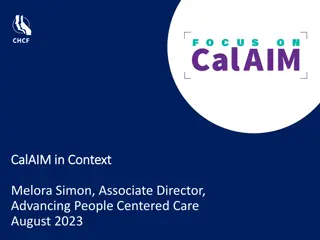

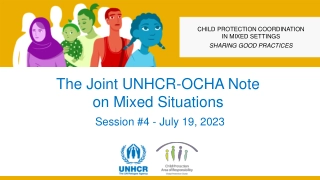
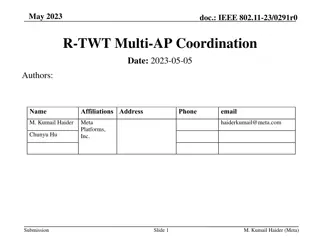
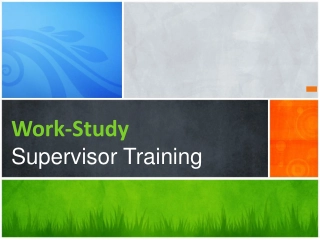
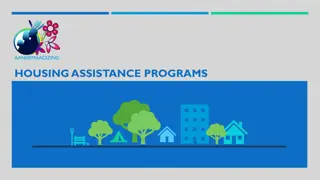
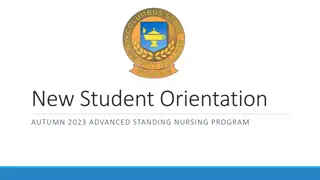

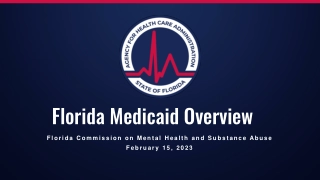

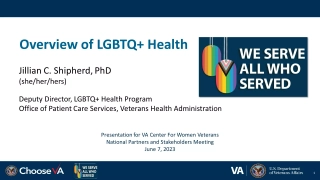
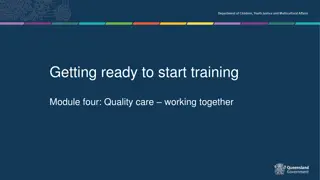
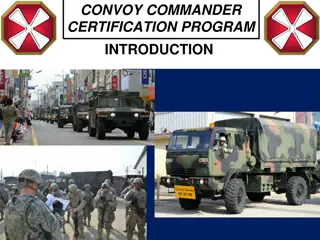
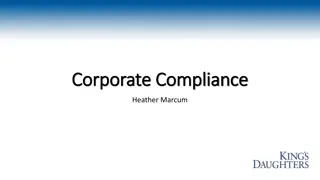
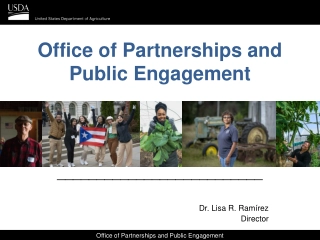
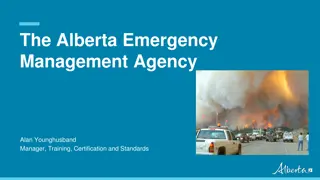

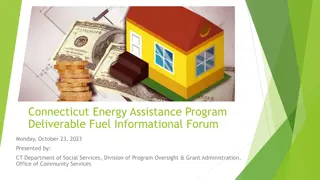
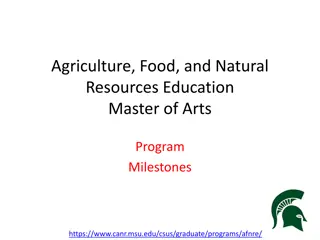
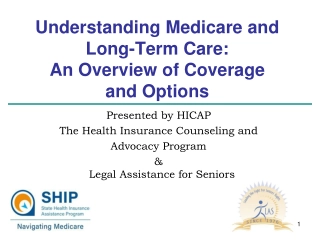

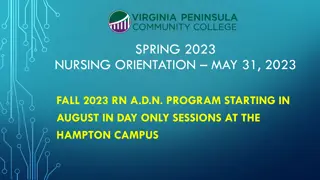

![Skincare Market Growth & Key Industry Developments [2030]](/thumb/26741/skincare-market-growth-key-industry-developments-2030.jpg)
